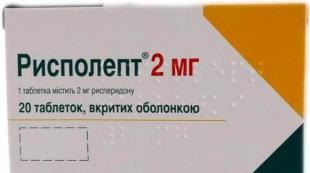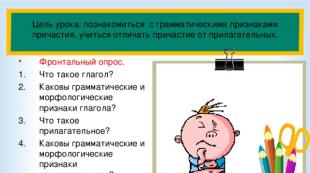Bad breath: how to quickly and painlessly get rid of the problem. Compliance with diets and nutritional habits. Principles of therapeutic therapy
Bad breath is a very common phenomenon among us. The reason for this is various diseases of the digestive system.
Bad breath is also a problem when communicating with other people. Modern medicine calls this condition when a person’s breath smells extremely unpleasant - halitosis. In Latin - Halitoz.
In fact, halitosis cannot be called an independent disease; rather, it is a sign of pathological processes occurring in the body. In the absence of proper oral care, the bad odor intensifies, causing discomfort not only to the patient, but also to others.
In this article we will look at why bad breath occurs in adults, what are the main causes of this symptom, and how to get rid of it at home.
How to check if your breath smells?
Many people who have unpleasant, repulsive breath are not even aware of the problem. It’s good if a loved one or friend points it out. But this is not always possible, relatives are afraid of offending their loved one, and colleagues prefer to reduce communication with him to a minimum. But the problem remains.
There are several ways to test yourself:
- Wrist test. Here it will be enough to lick your wrist and let the saliva dry. The smell you will smell after a few seconds is the smell of the front of your tongue. As a rule, it is much weaker than what it really is, because the front part of the tongue is cleaned by our saliva, which contains antibacterial components, while the back part of the tongue, in turn, is a breeding ground for unpleasant odors.
- You can also try breathe into your palm and instantly smell what you exhale. Or try sticking out your lower lip, pushing your jaw forward a little, and roll your upper lip inward and exhale sharply through your mouth, then smell what you exhaled.
- Spoon test. Take a teaspoon, turn it over and run it over the surface of your tongue several times. There will be some white residue or saliva on the spoon. The smell coming from them is the smell of your breath.
Additional signs include the formation of plaque on the tongue, inflammation of the mucous membrane, and a feeling of unpleasant taste in the mouth. These symptoms do not directly indicate halitosis and may vary depending on the cause of the disease and the presence of complicating factors.

Causes of bad breath
The causes of halitosis can vary significantly, but before you look for them, you need to make sure that this smell really exists. Modern doctors distinguish several types of halitosis:
- True halitosis, in which unpleasant breathing is objectively noticed by people around. The reasons for its occurrence may be related to physiological characteristics, insufficient oral hygiene, metabolic processes in the body, or be symptoms of certain diseases.
- Pseudohalitosis is a subtle unpleasant breath that can be felt upon close contact with a person. Usually in such a situation the patient exaggerates the problem and it can be solved quite simply by increasing oral hygiene.
- Halitophobia is a person’s belief that his breath smells, however, this is not confirmed by either the dentist or the people around him.
Also according to statistics:
- 80% of the causes of bad breath are related to problems in the oral cavity.
- 10% with ENT diseases.
- only 5-10% with serious diseases of internal organs and systems - liver, kidneys, gastrointestinal tract, respiratory system organs, hormonal imbalances, metabolic disorders, autoimmune and oncological diseases.
The most basic thing to understand is that the main cause of the unpleasant odor coming from a person’s mouth is the activity of anaerobic bacteria (that is, bacteria that grow and multiply without access to oxygen). Their waste products - volatile sulfur compounds - are those very smelly gases that smell very unpleasant and lead to bad breath in humans.

Why does bad breath occur?
But there are many reasons that lead to the proliferation of these bacteria. We will analyze them in detail:
- Poor oral hygiene. Most often, putrid breath is associated with poor oral hygiene, for example, when a person does not use dental floss to clean the interdental spaces from food debris. Surely many of you have felt the stinky breath of co-workers who had a snack at work but did not brush their teeth.
- Gum diseases(and periodontitis). The cause of these ailments is poor oral hygiene, soft microbial plaque and hard tartar. When the amount of toxins secreted by plaque and tartar microorganisms exceeds the capabilities of the local immunity of the oral cavity, inflammation develops in the gums.
- . Carious dental defects are filled with a huge amount of pathogenic microflora and there are always food residues left in them. This food and tooth tissue quickly begin to rot and as a result, your breath smells bad. If you want to eliminate bad breath, first of all you need to treat your bad teeth.
- Tartar development– dental plaque, which seeps in mineral salts (calcium salts) with its hardening and the development of chronic infection in it. More often, tartar is the result of gum pathology (gum pockets), which do not tightly cover the necks of the teeth and the spaces between their lateral edges.
- Digestive system diseases( , ). In this case, this problem is caused by the pathology of non-closure of the esophageal sphincter, when odors from the stomach penetrate directly through the esophagus into the oral cavity.
- . Those who suffer from chronic inflammation of the tonsils also have bad breath. If you have a weak immune system or there is a lot of infection in the oral cavity, then in this case periodic inflammation of the tonsils can develop into a sluggish chronic form of inflammation. People who suffer from this form of inflammation of the tonsils often complain of terrible breath.
- - an inflammatory disease that is accompanied by the formation of ulcers on the oral mucosa. Ulcers and thick white plaque are the source of halitosis.
- - an inflammatory process in the membrane of the tongue, which can occur together with gingivitis or stomatitis.
- Intestinal pathology(enteritis and). As a result of inflammatory processes in the intestines, toxic substances penetrate into the blood, which the body removes, including through the lungs, as a result of which bad breath appears.
- Another common cause of halitosis is dry mouth: saliva does not moisturize or clean the mouth by washing away plaque and dead cells. Thus, the cells found on the gums, inner cheeks and tongue decompose, causing halitosis. Dry mouth can be caused by drinking alcohol, certain medications, pathologies of the salivary glands, etc.
- Medications: Many medications, including antihistamines and diuretics, can cause dry mouth, which can cause bad breath. Such odor and treatment are often interrelated - a number of medications can lead to bad odor (insulin, triamterene, paraldehyde and many others).
- Quite often the cause of bad breath is some products. Of course, onions and garlic are rightfully considered record holders here. However, after noisy feasts with a lot of meat and fatty foods, bad breath may also appear. True, it goes away pretty quickly.
- Tobacco products: Smoking and chewing tobacco leaves chemicals that linger in the mouth. Smoking can also accelerate other causes of bad breath, such as gum disease or oral cancer.
Whatever the various causes of bad breath, the source of all problems is bacteria. They are always in our oral cavity, creating a certain microflora there. Any living organism, and bacteria are no exception, when feeding, produces waste products, which are volatile sulfur compounds. It is these foul-smelling sulfurous volatile compounds that we smell from our mouths.
Experts believe that one of the most obvious causes of its appearance is the white matter that accumulates on the back of the tongue. It occurs when a person brushes their teeth incorrectly, leaving their tongue unattended.
How to treat bad breath
In case of bad breath, treatment is a separate topic for discussion, but what can be done to prevent it from appearing is important to know even for those who do not suffer from such a problem. After all, bad breath, if it appears, cannot be masked with mint candy.
As noted above, food particles remaining after eating are soil for the growth of bacteria. That is why a lot depends on oral hygiene. It is recommended to take care that after eating food there are no pieces of food left in the mouth, which, among other things, contribute to the formation of plaque and tartar. This requires:
- Brush your teeth with a soft-bristled toothbrush three times a day to remove food particles remaining in the mouth and stuck in the teeth;
- clean the interdental spaces with dental floss;
- clean the back of the tongue daily with a soft-bristled brush;
- to stimulate salivation, regularly eat fresh fruits and vegetables and adhere to a diet;
- to eliminate xerostomia (dry mouth), rinse your mouth with warm water;
- visit the dentist regularly.
At home, rinsing with vegetable oil helps get rid of bad breath. To do this, take a small portion of oil into your mouth and hold it there for 10-15 minutes. Oil has the good property of dissolving all rotting products. Then spit and rinse your mouth thoroughly. You can't swallow this oil! If the procedure is carried out correctly, the oil should become cloudy.
Infusions of herbs such as peppermint, string, caraway, and wormwood have the ability to remove unpleasant odors. To clean the pockets in the gums, it is good to rinse after meals with a 3% solution of hydrogen peroxide, diluted 1:1 with water. Peroxide will clean even the deepest pockets well and eliminate the problem.
In addition, there are a large number of modern means of quickly getting rid of bad breath: aerosol fresheners, chewing gum, lollipops, etc. They are characterized by both rapid efficiency and low stability due to their short duration of action.
Which doctor should I contact?
If you experience bad breath, you need to see a dentist, have your teeth professionally cleaned, treat diseases of your teeth and gums, and get rid of tartar.
If there is no effect, you should consult a gastroenterologist, and also, in rarer cases, an ENT doctor (for sinusitis or chronic rhinitis), a pulmonologist (for bronchiectasis), and an endocrinologist (for diabetes mellitus).
Among all kinds of human shortcomings, imaginary or obvious, bad breath is not noticeable and invisible in photographs, but it not only interferes with communication, but can also indicate serious problems with the body. In some cases, the situation worsens so much that we are not just talking about questionable freshness of breath, but we have to admit that our breath really stinks. What to do about this problem, and what to pay attention to first?
Halitosis - bad breath
The medical name for this symptom is halitosis. In this case, the smell can be different: sour, sweetish or even putrid. Mild halitosis can occur from time to time even in a healthy person for completely natural reasons. For example, by morning a soft plaque accumulates on the teeth, gums and tongue, which has a specific smell.
There is a common misconception that people began to pay attention to bad breath under pressure from insidious dental corporations, but before that, everyone was indifferent to dubious odors. In fact, even in the last millennium, when praising loved ones, poets mentioned fresh and fragrant breath as one of the elements of beauty. It's hard to think about the sublime when your counterpart's breath stinks. What to do and in what order to solve problems? First, you should put aside panic and understand the possible reasons.

Why does my breath smell?
We must admit that the human body smells, and not at all like roses. What causes odors? The sense of smell perceives molecules of various substances in the air, and the type of these substances determines how pleasant or unpleasant the aroma is to you. For example, the contents of the intestines smell unpleasant due to hydrogen sulfide, methane, carbon dioxide and some other gases, which are waste products of bacteria inhabiting different parts of the digestive tract. The oral cavity is also home to microorganisms that are “responsible” for halitosis.
But if your breath really stinks, what should you do? Odor is a symptom that appears for any of these reasons:
- dental problems;
- diseases of the gastrointestinal tract;
- endocrine disorders (diabetes);
- diseases of the ENT organs;
- pulmonary problems (for example, bronchiectasis).
It is more difficult to get rid of halitosis if it manifests itself due to a combination of heterogeneous causes. Dental problems can occur in combination with stomach ulcers or other diseases of the digestive system.

Condition of the oral cavity
Dentists claim that they do not even guarantee the absence of bad breath. Many people simply brush their teeth poorly, do not reach the farthest corners, and a soft coating remains on the enamel, in which bacteria actively develop. The wisdom teeth and those adjacent to them suffer the most from this.
Over time, the soft plaque hardens and turns into tartar, which puts pressure on the gums, provoking an inflammatory process. When you have gum disease, your breath inevitably stinks. What to do? First of all, you need to remember that the absence of caries is not everything. It is necessary to brush your teeth thoroughly and regularly visit a dental hygienist to remove tartar.
Any inflammatory process in the oral cavity, sore gums, problem teeth - all this for the time being can proceed almost unnoticed, without critical pain. Halitosis, as the main symptom, is the first to indicate the presence of inflammation.

Gastrointestinal problems
If your breath smells suspiciously, the stomach may be the culprit. For example, if you eat garlic and then brush your teeth, it will still smell. Depending on the type of problem, an unpleasant odor may appear on an empty stomach, after certain types of food, only in the evenings or in the middle of the night.
If the problem is in the digestive system, what can you do to prevent your breath from stinking? You need to make an appointment with a gastroenterologist to conduct an examination and clarify the diagnosis. If the smell appears on an empty stomach, then it will be enough to eat something light and neutral - perhaps it is increased acidity.
Halitosis as a symptom
Bad breath itself is not a disease, but an expressive symptom that signals problems in the body. There are cases when it was halitosis that made it possible to make a timely diagnosis and recognize a serious disease before it turned into a serious condition. Difficulties begin due to attempts to quickly cure the symptom in order to get rid of awkwardness when communicating if your breath stinks very much. What to do in such a situation?
The most common reasons are, of course, dentistry, followed by the digestive system. Much less often, halitosis appears due to advanced sinusitis, and is possible as a concomitant symptom of diabetes and other diseases.
How to determine if there is a problem?
The most unpleasant feature of halitosis is that the person suffering from it does not always smell and is blissfully unaware of the suffering of those around him. It becomes difficult to communicate with him, especially if the interlocutor prefers to lean too close to his face. It’s even more difficult for subordinates if the boss’s breath stinks. What to do and how to check the freshness of your breath?
The simplest method is to lick your wrist and after a couple of minutes smell the skin. You can smell quite an unpleasant odor. As a control test, take a scraping of plaque from your tongue. Run a regular teaspoon across your tongue, preferably closer to your throat. The slightly dried coating has a characteristic smell, which is what the interlocutor feels during a confidential conversation. A similar test is carried out using unscented dental floss - just clean the spaces between your teeth and smell the floss. Finally, you can ask a direct question to a loved one, especially if he does not suffer from excessive delicacy and does not hush up problems.

Oral hygiene
Dental hygienists say that more than half of their patients have no idea how to brush their teeth. This is why the chain of transformation of soft plaque into tartar begins, caries appears, gums become inflamed, and the breath stinks in the morning. What to do with this, we are taught from childhood - we need to brush our teeth twice a day, morning and evening, and the movements of the brush should not only be left and right. The spaces between the teeth are better cleaned by “sweeping” movements from top to bottom, and the gums are massaged in a circular motion at the same time.
Soft plaque forms not only on the surface of the teeth, but also on the gums, on the tongue, and even on the inner surface of the cheeks. Of course, you shouldn’t “scrape” the inside of your mouth too vigorously, as this can injure soft tissues, accidentally cause an infection, and only provoke the development of inflammatory processes. After eating, just use dental floss and rinse your mouth, you don’t have to grab a toothbrush.

Ancient folk methods
All kinds of herbs, syrups, and lozenges were previously used to freshen breath. The folk remedies included violet flowers, mint, rosemary, clove oil, anise, cardamom, and extracts from berries and fruits. Pharmacists created proprietary formulas and kept the proportions of ingredients secret in order to attract buyers who wanted to add an exciting aroma to their breath. Nowadays it is enough to buy a pack of chewing gum to achieve the same effect. The only problem was the short duration of the aroma.
Even for a medieval beauty, the question of what to do if her breath constantly stinks did not become some kind of unknown mystery. Sick teeth were treated with varying success by all kinds of healers, and inflammatory processes were treated with decoctions and infusions of medicinal herbs. These recipes still work today.
You can rinse your mouth for medicinal purposes with an infusion of sage and chamomile. If your gums become inflamed and bleed, a decoction of oak bark, pine needles, and nettle helps.

Nutrition correction
If the smell appears after eating or on an empty stomach, then the culprit may be the diet. Diseases of the digestive system also require a special diet, so changes in diet will not only improve the condition of the stomach, but also eliminate the unpleasant odor. If your breath stinks very badly after eating, what should you do about your diet? To begin with, you should exclude all foods with extreme tastes: salty, spicy, sour, smoked. You should be careful with raw garlic and onions; the essential oils of these vegetables can aggravate the painful condition, and halitosis becomes a side effect.
You can switch to a healthy and gentle diet even without a doctor’s recommendation - you should replace your morning sandwich with smoked sausage with a plate of tender oatmeal, and observe how your stomach feels, and whether bad breath appears after such a breakfast. A visit to a gastroenterologist and a full examination will help you make more reasonable adjustments to your diet.
Halitophobia
Commercial corporations have a somewhat different understanding of the postulate that everything in a person should be perfect, and they successfully manipulate the consciousness of the consumer. The natural color of teeth is not actually sparkling snow-white, and your breath does not necessarily smell like a bouquet of alpine herbs with a menthol note. The fear of not conforming to the replicated template can turn into a real phobia; a person thinks that his breath stinks of rot, what should I do? Fear appears, aggravated by panic attacks. A person suffering from halitophobia does his best to mask his breathing, brushes his teeth not only in the morning and evening, but also after meals, and in between meals continuously consumes chewing gum, flavored candies and lollipops.
Such a bouquet of chemistry sooner or later leads to the fact that instead of an apparent problem, a very real and real one appears. Phobias need to be fought, they do not go away on their own - on the contrary, the condition can worsen, and related fears appear. Fresh breath is great, but avoiding bad breath requires a reasonable amount of effort without being overzealous.
Halitosis is a rather delicate problem that reduces the quality of life and brings discomfort to a person. Bad breath in adults, the causes and treatment of which are inextricably linked, can be easily eliminated at home. However, in some cases, specialist help will be required.
Why does my breath smell bad?
There are physiological reasons for bad odor. So, in the morning, everyone can feel it, because during the night saliva did not have time to clean the oral cavity, because during sleep its production slows down. Halitosis is common in older people. The fact is that with age, the amount of saliva produced decreases.
Sometimes, under the influence of medications taken, the composition of saliva changes, its properties deteriorate, and it begins to be produced to a lesser extent. Dry mouth causes a foul odor, because it is saliva that maintains a healthy acid-base balance, washes away plaque, which contains many harmful microorganisms, and destroys bacterial cells that cause bad breath.
Dry mouth syndrome can also be caused by other factors:- avitaminosis;
- botulism;
- radiation damage.
Bad breath can be caused by diet. Fasting triggers a process in which the body begins to consume stored fats. When they decompose, ketones are produced and cause a sweet or sour odor. In this case, fresh breath will return only after leaving the diet. The same goes for overeating and poor personal oral hygiene. After a hearty lunch or dinner, pieces of stuck food begin to rot, causing a disgusting smell.
Bad odors from some foods can last up to 24 hours. These include:
- spicy seasonings;
- onion and garlic;
- herring and canned food;
- carbonated drinks;
- spicy meat products;
- alcohol and coffee;
- dairy products;
- horseradish;
This food contributes to the formation of plaque, and as it penetrates the digestive system, compounds are formed that disrupt the acid-base balance in the mouth. At the same time, bacteria actively multiply.
Types of unpleasant odor
Depending on the severity and frequency of halitosis, there are three types:- True. People around you clearly notice the unpleasant odor. The reasons may be physiological characteristics, the development of pathologies of internal organs, diseases of the teeth and gums.
- Pseudohalitosis. The breath with it is not entirely fresh and is felt only when in close contact with a person. Usually this problem occurs due to violations of personal hygiene rules and the consumption of certain foods.
- Halitophobia. The adult has no obvious problems, his breath does not smell at all, but he is convinced of the opposite. The psychological factor plays a big role here.
The nature of the smell can indicate specific pathologies, namely:
- Rotten talks about dental problems.
- Putrid is a consequence of a purulent process in the respiratory tract or the development of intestinal dysbiosis. This often occurs in people who abuse alcohol. A putrid odor is felt when the walls of the esophagus decompose, if there is a malignant tumor.
- The breath of those who suffer from diabetes or kidney disease smells like acetone.
- A slight odor that appears when exhaling or during coughing indicates lung disease.
- Bitterness in the mouth and a yellow tongue indicate problems with the gallbladder.
- A sour smell is characteristic of people suffering from pancreatitis and diabetes.
- A bitter and pungent taste indicates problems with the pancreas.
- Rottenness indicates the development of chronic gastritis.
- The smell of ammonia is a consequence of chronic renal failure.
To understand how your breath actually smells, you can use a regular spoon. You need to turn it over and run it across your tongue so that a little plaque or saliva remains on the spoon. The smell emanating from them indicates the quality of their breath.
Causes of true halitosis
The causes of bad breath in adults can be various factors. Often the problem is associated with a person’s oral cavity; he may experience:- carious cavities;
- tartar;
- large accumulation of plaque;
- presence of crowns, braces, plates;
- diseases of the tongue and gums;
- decreased saliva viscosity;
- stomatitis and other inflammations of the mucous membrane.
Halitosis can be a symptom of diseases such as: 
- respiratory infection (gangrene, tuberculosis, lung abscess, bronchiectasis);
- renal failure;
- kidney diseases (nephrosis, cystitis, pyelonephritis);
- diabetes;
- gastrointestinal pathologies (gastritis, colitis, ulcers);
- diseases of the liver and biliary tract (cholecystitis, cholelithiasis, hepatitis, cirrhosis);
- diseases of the ENT organs (sinusitis, otitis media, sinusitis);
- disruption of the endocrine system (imbalance of sex hormones affects the properties of saliva);
- Sjogren's disease (decreased secretion of the salivary glands).
In almost half of the cases, the cause of halitosis in adults is an unhealthy liver and pathologies of the gastrointestinal tract. The saddest cause of bad breath can be cancer of the stomach or esophagus. There is no need to rush to diagnose any disease in yourself if there is no fresh breath. After all, this situation occurs periodically in every person.
The appearance of a foul odor may be associated with constant constipation, flu and menstruation, and poor personal hygiene. When smoking a cigarette in the mouth, the process of cleansing the mucous membrane is disrupted. At the same time, the amount of oxygen released decreases and microorganisms begin to multiply. This bad habit also causes the formation of tartar and the development of gum inflammation. The presence of dentures and plates provokes the development of halitosis. It manifests itself especially strongly in the case of poor care of the surface of the dentures. After all, many bacteria multiply here, which create a bad smell.
Anti-odor medicine
To eliminate bad breath in an adult, you must first identify the cause of its occurrence. Sudden onset halitosis may be a consequence of the development of a serious pathology. Therefore, you need to conduct an examination of the body, get advice from specialists and start therapy as quickly as possible.
First of all, dental problems should be eliminated and dentures replaced with new ones, if necessary. You may need dental fillings to prevent caries, tooth extraction, or treatment for gum disease. The doctor usually prescribes a special toothpaste, dental gel and other antibacterial drugs. Sometimes the problem of low salivation needs to be corrected.
 If after the procedures the bad breath persists, you should consult a therapist. In case of rotten breath, which is the result of an ulcer or gastritis, you need to visit a gastroenterologist. An endocrinologist will help dispel suspicions of diabetes. The nose should not be stuffy, because forced breathing through the mouth provokes dryness in the oral cavity. Also, in case of rhinitis or sinusitis, you need to visit an ENT doctor, in case of bronchial disease - a pulmonologist, in case of diabetes - an endocrinologist.
If after the procedures the bad breath persists, you should consult a therapist. In case of rotten breath, which is the result of an ulcer or gastritis, you need to visit a gastroenterologist. An endocrinologist will help dispel suspicions of diabetes. The nose should not be stuffy, because forced breathing through the mouth provokes dryness in the oral cavity. Also, in case of rhinitis or sinusitis, you need to visit an ENT doctor, in case of bronchial disease - a pulmonologist, in case of diabetes - an endocrinologist.
It is better to remove foods that cause bad breath from your diet. To eliminate halitosis, you can use special deodorizing agents, dental floss, irrigator, and ultrasonic brush.
Self-treatment
For those who prefer treatment at home, traditional methods of combating halitosis are suitable. Below are popular recipes:
- For rinsing, you should use an infusion of sorrel. 3 teaspoons of raw material are poured into 0.5 liters of boiling water and left for 2 hours. After this, filter the mixture and rinse your mouth with it.
- Strawberry leaves in the amount of 1 tablespoon are poured with 2 cups of boiling water and left for 3-4 hours. You should drink half a glass of the composition every day.
- An infusion of wormwood is suitable as a rinse. You need to brew 1 teaspoon of it with a glass of boiling water and leave for 20 minutes. Rinse 2-3 times a day after meals.
- A decoction of sorrel leaves is taken internally. A tablespoon of raw material is poured into 500 ml of water and boiled for 15 minutes. After this, the composition is removed and left for 2 hours. The solution is divided into 4 parts and drunk throughout the day before meals.
- The following effective remedy will help eliminate the unpleasant odor. You need to take 1 tablespoon of vegetable oil and rinse your mouth with it for 10 minutes. Flaxseed, sea buckthorn, and olive oil are suitable.
- You need to brew 2 teaspoons of anise seeds in a glass of boiling water. The composition must be left for 20 minutes and strained. After eating, rinse your mouth and throat thoroughly. This plant has bactericidal and anti-inflammatory effects.
- You can freshen your breath with berries. Suitable juices include cranberry juice, sea buckthorn juice, rosehip tea, strawberry juice and raspberry juice.
Any treatment must be accompanied by compliance with the rules of personal hygiene and preventive measures: 
- After each meal you need to rinse your mouth with water or a special solution. It is advisable that it does not contain alcohol.
- You should brush your teeth twice a day, and don’t forget about your tongue. It is also cleared of plaque.
- It is necessary to monitor the cleanliness of dentures, braces, and orthodontic plates.
- It's better to get rid of bad habits.
- You need to visit the dentist once every six months. You can carry out special hygienic cleaning on it, which will deprive bacteria of the nutrient medium.
- You need to drink more water, it helps in the fight against unpleasant odor by promoting the secretion of saliva.
- It is better to use personal hygiene products that contain only natural ingredients.
- You need to pay attention to your diet. It is better to include more vegetables and fruits in it. It is useful to eat rolled oats; it helps produce saliva.
- You can eat 1-2 apples on an empty stomach in the morning, after rinsing your mouth.
- To eliminate the smell after eating a product, you need to drink strong, freshly brewed tea.
Do not overuse chewing gums and mouthwashes. They provide only a short-term effect and can sometimes make the problem worse. After all, they kill natural microflora. Instead of chewing gum, it is better to use calamus root, clove seeds, mint, and dill. The use of lollipops and tablets can cause the development of caries, so you should not get carried away with them either.
It is useless to self-treat halitosis if pathology of internal organs develops or there is inflammation in the mouth or dental caries. A doctor who will prescribe a comprehensive treatment to eliminate bad breath will help solve such problems. The main rule remains giving up bad habits and eating healthy food.
Bad breath is quite common. But in only one out of four cases does it manifest itself over a long period of time.
In most cases, this is the presence of a chronic disease in the human body.
An unpleasant odor may appear due to disturbances in the digestive organs.
In this case, a person develops an abundant accumulation of bacteria, which the body is not able to cope with in a timely manner.
In medicine, this disease has an official name - “halitosis”. But this disorder can be eliminated with systematic treatment.
The main thing is to determine the cause of this condition and take the necessary measures. If you only eliminate bad breath, there are consequences - it will help, but only temporarily.
How to determine the presence of an unpleasant odor
You can independently determine whether there is an unpleasant odor in only one case - by the reaction of people around you.
The problem is that the mouth and nose are connected to each other by a very thin septum - the upper soft palate.
In order to identify odors that are outside the body, the subconscious mind perceives only other odors. Most often, a person does not even suspect that there is an unpleasant odor from the mouth.
In this case, to determine whether you specifically have an unpleasant odor, you need to contact another person. Your loved one or the dentist you contact will be suitable.
You can also cup your palms and exhale sharply. The smell remains on your hands for several seconds.
Causes of bad breath
The reasons for the appearance of an unpleasant odor can be different: pathological and physiological.
In most cases, the cause of bad breath is a white substance that is found on the back of the tongue. This is where the bacteria are located.
Physiological reasons may be the following:
- Very cruel diets and fasting.
- Use of medications.
- Having bad habits.
- Failure to comply with natural hygiene rules.
In such cases, unpleasant odor can be eliminated easily and simply by changing your usual lifestyle.
For example, give up bad habits and strengthen hygiene procedures. For example, in Korea it is customary to brush your teeth after every meal.
But additional reasons may be hidden in the presence of diseases of the gastrointestinal tract, kidneys, as well as the endocrine and bronchopulmonary systems.
The smell from your mouth can be varied. For example, acetone, rotten eggs, ammonia, sweet, sour, putrefactive, feces.
In this case, it is advisable to consult a doctor so that he can determine what causes this condition and manifestation. There are examples in which it is necessary to urgently call an ambulance.
How to independently determine the presence of an unpleasant odor?
This can be done only in one case. You need to lick your wrist and wait a few seconds until the saliva dries. Smell the area and you will be able to determine if you have bad breath.
To determine whether there is an odor from the base of the tongue, you need to take a teaspoon and rub this part of the tongue. Pay attention to the color of the plaque and the smell.
Food as a cause of unpleasant odor
What else could cause this problem? There are a number of products that have an unpleasant taste and aroma. For example, herring, garlic and onions.
When these products are processed, their components enter the bloodstream and are distributed throughout the body. Some of these molecules have a very unpleasant odor and enter the lungs along with the bloodstream.
They are removed from the lungs of the respiratory system and enter the oral cavity.
You can eliminate this unpleasant symptom easily and simply - to do this you need to exclude these dishes from your diet.
Can gum disease cause bad breath?
Gum diseases have a more professional name - periodontitis and periodontal disease. They can cause bad breath.
In most cases, it appears in the morning, before the person brushes his teeth. This condition can also occur after eating food. The dentist will be able to identify this condition very quickly.
An inflammatory process occurs in the gums in people over 35 years of age. It may be a consequence of the presence of caries.
Bacteria penetrate the gums and the inflammatory process begins. Gradually, this disease can lead to an inflammatory process in the jaw.
The inflammatory process in the gums causes the gums to gradually begin to recede, exposing the roots of the teeth. At an advanced stage, it may be that a person bites off solid food and the teeth fall out.
Bad habits
People who smoke have a specific unpleasant odor. Because of which? Several factors influence this. For example, this is tar, nicotine, and other components.
They remain on soft tissues and teeth. Negative consequences can be eliminated using various hygiene products.
But a significant disadvantage of these drugs and medications is that the effects of saliva are weakened. It gets worse and worse at eliminating unnecessary bacteria.
People who smoke develop gum disease much faster.
Respiratory system diseases and bad breath
Many people who suffer from diseases of the bronchopulmonary system and bad breath are interested in whether there is a connection between these diseases.
For example, when you have a runny nose or sinusitis, nasal discharge enters the oral cavity and can cause an unpleasant odor.
Also, with diseases of the nasopharynx, a person needs to breathe through the mouth. In this regard, dryness appears in the oral cavity, and this discomfort appears.
In addition, medications that are used to treat this disease can cause dryness and only worsen the situation.
Dentures
Despite the fact that a person eats food every day throughout his life, teeth are the only component in the body that is not prone to self-healing.
Therefore, sooner or later, to one degree or another, people are able to use prostheses. They can partially or completely replace teeth. But can they cause bad breath?
You can do a completely simple test at home. To do this, you need to remove the dentures and place them in a closed container.
Leave them for a few minutes. Then open the box and determine if they have a bad odor.
Bacteria can accumulate on teeth and tongue, as well as dentures. To eliminate this unpleasant condition, dentures must be cleaned in a timely manner.
Dry mouth as a cause of unpleasant odor
Even if a person does not have any particularly dangerous diseases for the body, he may notice bad breath in the morning.
This is due to the fact that his mouth dries out during the night. At this time of day, the body produces much less saliva.
This condition is also observed in people who talk a lot throughout the day. This disease has an official name - “xerostomia”.
Natural hydration is necessary for timely cleansing of the oral cavity from unnecessary bacteria. Saliva helps eliminate unnecessary bacteria and prevent their reappearance.
It also eliminates food particles that can cause new bacteria to appear.
Saliva can also be called a natural cleanser. It helps destroy bacteria. If the oral cavity dries out due to any diseases, then the neutralization of the bacteria slows down.
Gum diseases, caries and even gastrointestinal disorders occur.
Additionally, xerostomia may occur due to medications. Why does this happen?
For example, these could be medications taken to treat allergies, to normalize blood pressure, drugs, tranquilizers, and antidepressants.
The older a person gets, the more prone they become to dry mouth.
They work at a much lower speed, and its quality also changes. At the same time, periodontal disease occurs, which further aggravates the condition of the gums.
The main reason for the appearance of unpleasant odor
The main cause of bad breath is diseases and disorders in the oral cavity. More precisely, the bacteria that are there are to blame for everything.
They, like any other microorganisms, feed and excrete waste. It is the waste that causes the unpleasant odor.
These compounds are easily eliminated and spread. There are several options for the formation of compounds that can cause this condition. For example, Skatol.
This is the main component of the smell of feces. Cadavrine is a substance that causes a cadaverous odor. And also Putrecin. It appears when meat products rot.
It is quite difficult to imagine the presence of these odors and compounds. But it all depends on their number.
A type of halitosis
Cases cannot be ruled out when a person “invents” the presence of an unpleasant odor. First, it is necessary to determine whether a person actually has the disease.
In medicine, there are several types of halitosis:
- Pseudohalitosis. Bad breath appears only with very close contact.
- Halitophobia. This is a person’s obsessive thought that he has bad breath. In fact, there is no reason to worry at all.
- True.
With pseudohalitosis, you just need to monitor the oral cavity in a timely manner, but with true, you need to take measures to eliminate the cause of this disorder.
Stool odor
If there is a smell of feces from the mouth, it is necessary to examine the intestines. Frequent constipation and intestinal obstruction are possible. This symptom can also be observed in the presence of anorexia.
In diseases of the bronchopulmonary system, such a smell is extremely rare.
Putrid odor from the mouth
Occurs when there are disorders in the oral cavity. It can appear due to caries, pathology of the salivary glands, untimely removal of plaque, stomatitis, and periodontal disease.
As well as diseases of the bronchopulmonary system: bronchitis, allergies, sore throat, sinusitis and pneumonia.
This may be a consequence of bad habits or diseases of the gastrointestinal tract. For example, gastritis with high acidity.
Smell of acetone
In most cases, it indicates the presence of acute and serious diseases of the gastrointestinal tract.
Kidney diseases. It is this organism that cleanses the body. With diseases such as kidney dystrophy, acute renal failure, an unpleasant odor appears.
Diabetes. This is a disease of the pancreas that does not produce enough insulin to break down food, particularly glucose.
Due to increased blood sugar levels, the number of ketone bodies may increase.
At the same time, the load on the kidneys increases. This organ of the excretory system cannot cope with removing sugar breakdown products from the blood and uses the lungs for this. Because of this, this symptom appears.
If you know that one of your loved ones has diabetes and you smell acetone from them, then urgent hospitalization is necessary. This may be a harbinger of diabetic coma.
Hyperthyroid crisis. If there are problems in the functioning of the thyroid gland, there may be complications of the disease, which has another name: crisis.
Additionally, muscle tremors, intense decrease in blood pressure, abnormal heart rhythm, sharp increase in body temperature, and vomiting occur. In this case, it is necessary to urgently call an ambulance.
Rotten eggs
Occurs when the stomach stops working normally. This can occur with gastritis with high acidity, as well as poisoning with low-quality products.
Sweet
This aroma appears in people whose bodies have insufficient amounts of microelements and diabetes mellitus. Even after natural hygiene procedures, the smell appears very quickly.
This is because the cause of the disease has not been eliminated. In this case, complete restoration of the body is necessary.
Sour
Evidence for this “aroma” may appear in the presence of chronic diseases of the gastrointestinal tract.
For example, with pancreatitis, gastritis with high acidity and heartburn with the appearance of nausea. Also, this symptom is the presence of a disease of the esophageal opening.
Which doctors should you contact?
In order to determine what disease caused these manifestations, you need to contact the following doctors:
- Dentist.
- Therapist.
- Gastroenterologist.
- Surgeon.
It all depends on what disease caused the unpleasant odor. In most cases, either a dentist or an ENT specialist can handle it.
But if the disease is more serious, then it is necessary to undergo a complete examination of the whole body.
But if you only eliminate the consequences of the disease, then the cause will only intensify over time.
Prevention
Even if you do not experience this symptom, you need to pay attention to prevention.
It consists in the timely destruction of bacteria that are in the oral cavity and the prevention of diseases of the gastrointestinal tract.
It is necessary to visit your dentist regularly to determine the presence of oral diseases. He will additionally recommend how to properly brush not only your teeth, but also your mouth.
It is necessary to eliminate bacteria that are located in periodontal pockets - the space between the teeth. This is done using dental floss.
It is also necessary to clean the inner surface of the cheeks and tongue with a special brush. They also accumulate copious amounts of bacteria.
Most people ignore such manifestations, but this must be learned. Sometimes this is all it takes to eliminate bad breath.
It must be remembered that the front part of the tongue cleans itself throughout the day when the back part does not have such functions.
There are several options for deep tongue cleaning. At first, a gag reflex may occur, but over time it will decrease.
Sometimes tartar can interfere with the normal cleaning of tooth enamel. It is the doctor who can remove it in a timely manner.
If an inflammatory process occurs in the gums, the doctor can recommend the necessary treatment. Periodontal disease can gradually affect your dental health.
Principles of therapeutic therapy
Eliminating bad odor is a very important therapy for many people.
The most important thing is to determine the cause of this violation. Afterwards, it is necessary to take measures that will be aimed at eliminating the cause and defeating diseases in the oral cavity.
- If you have sinusitis, you will need to pierce and rinse your sinuses.
- For caries. Repair damaged teeth.
- During the inflammatory process. Application of measures to eliminate the inflammatory process.
How to eliminate bad breath during the day
It is necessary to rinse the mouth thoroughly after each meal. This will help eliminate some of the pathogenic bacteria.
You can use not only water, but also special liquids. They can be purchased at the pharmacy.
Keep an eye on your mouth, especially after eating protein foods. It is the bacteria contained in meat that can cause this unpleasant symptom.
You need to drink plenty of water throughout the day. Sometimes bad breath can be a signal of sludge in the body due to insufficient water.
In children, this disease occurs in the presence of dysfunction of the gastrointestinal tract.
There are a number of causes of bad breath (halitosis):
- use of poor quality hygiene products. The toothbrush should be as maneuverable as possible, have medium hardness and a movable head that can penetrate hard-to-reach places;
- Irregular brushing of teeth. You need to take care of your oral cavity at least 2 times a day, because cariogenic bacteria constantly produce fetid hydrogen sulfide, which causes bad breath;
- smoking. Bad breath in smokers occurs due to prolonged smoking and chronic dental diseases;
- caries. Rotten food fragments stuck in carious cavities increase the manifestations of bad breath;
- some diseases. Often the stench appears due to diseases of the digestive system (for example, gastritis);
- wrong diet. Eating large amounts of fast food and foods rich in simple carbohydrates, carbonated drinks can cause bad breath;
- other reasons.
Who is at risk?
People who have:
- endocrine disorders;
- excess body weight;
- hormonal disorders;
- problems with the functioning of the salivary glands;
- tendency to form gas (flatulence);
- immunodeficiency disorders;
- inflammatory and infectious processes in the oral cavity;
- disturbances of intestinal microflora.
How to get tested for halitosis?
Sometimes it is difficult to find out what causes bad breath without using instrumental and laboratory diagnostic methods. Therefore, if you suffer from halitosis, the symptoms of which do not decrease with increased hygiene measures, you should undergo a comprehensive examination, visit a gastroenterologist, nutritionist, dental hygienist, and take blood and urine tests.
At the dentist's office, you can undergo a breath test and assess the degree of development of halitosis. A specialist will accurately determine whether you have this disease or whether you suffer from halitophobia. The air exhaled through the nose has an odor that comes from the tonsils and nasal cavity. There is no odor emanating from the oral cavity. Sometimes nasal breathing is unpleasant (with sinusitis, adenoids, polyps). Therefore, to determine the exact location of the source of the stench, a specialist will evaluate the nasal, pulmonary and oral air separately.
Eliminating bad breath
Get rid of bad breath (halitosis) by changing your approach to nutrition and daily hygiene:
Use quality toothpastes and gels well-known manufacturers, which can effectively remove microbial plaque, help prevent caries, as well as eliminate bad breath.
Use ultrasonic toothbrushes because their bristles clean out food debris even from hard-to-reach places.
Use floss to clean the interdental spaces from pieces of food that feed bacteria, creating a stale odor in the mouth.
Carry out a regular mouth rinse procedure. Use mouthwashes such as LISTERINE®. They contain a complex of essential oils that can remove bad breath by acting directly on the cause of its occurrence - pathogenic microorganisms. The components in LISTERINE® reduce the formation of microbial plaque on the surface of teeth, destroying up to 99.9% of bacteria 1 that cause halitosis, as well as diseases of the gums and teeth. When used correctly, LISTERINE® rinses can get rid of bad odors for 24 hours!
Food. In some cases, certain foods can help reduce unpleasant odors, such as apples, carrots, broccoli, spinach, Brussels sprouts and other vegetables.
As you can see, the causes of bad breath are varied. It can sometimes be difficult to determine why bad breath occurs in people who visit the dentist regularly, lead a healthy lifestyle, and take good care of their teeth. In each specific case, individual diagnosis and competent treatment are necessary.
1 In vitro studies using model of oral biofilms have shown that LISTERINE® can reduce the viability of plaque biofilm by up to 99% compared to a water control. Reduces up to 99% of plaque (or plaque forming) bacteria in lab tests. Internal reports for studies by Minoli G., October 3, 2008 (mixed species biofilm flow through assay performed from Sept. 30, 2008 through Oct. 3, 2008) and by Ilg D et al, Febriary 20, 2009 (mixed species biofilm flow through assay performed from February 16, 2009 to February 20, 2009).









